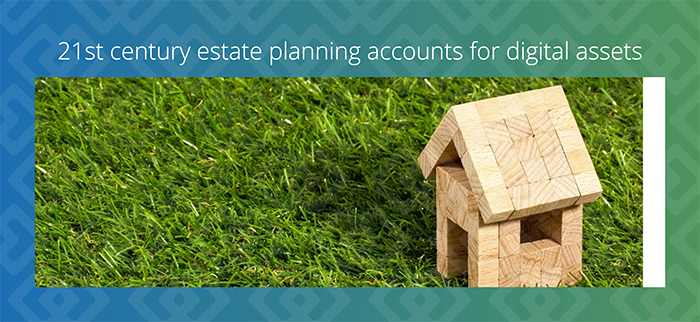Even though you can’t physically touch digital assets, they’re just as important to include in your estate plan as your material assets. Digital assets may include online bank and brokerage accounts, digital photo galleries, and even email and social media accounts.
If you die without addressing these assets in your estate plan, your loved ones or other representatives may not be able to access them without going to court — or, worse yet, may not even know they exist.
Virtual documents in lieu of hard copies
Traditionally, when a loved one dies, family members go through his or her home to look for personal and business documents, including tax returns, bank and brokerage account statements, stock certificates, contracts, insurance policies, loan agreements, and so on. They may also collect photo albums, safe deposit box keys, correspondence and other valuable items.
Today, however, many of these items may not exist in “hard copy” form. Unless your estate plan addresses these digital assets, how will your family know where to find them or how to gain access?
Suppose, for example, that you opened a brokerage account online and elected to receive all of your statements electronically. Typically, the institution sends you an email — which you may or may not save — alerting you that the current statement is available. You log on to the institution’s website and view the statement, which you may or may not download to your computer.
If something were to happen to you, would your family or executor know that this account exists? Perhaps you save all of your statements and correspondence related to the account on your computer. But would your representatives know where to look? And if your computer is password protected, do they know the password?
Revealing your digital assets
The first step in accounting for digital assets is to conduct an inventory of any computers, servers, handheld devices, websites or other places where these assets are stored.
Although you might want to provide in your will for the disposition of certain digital assets, a will isn’t the place to list passwords or other confidential information. For one thing, a will is a public document.
One solution is writing an informal letter to your executor or personal representative that lists important accounts, website addresses, usernames and passwords. The letter can be stored with a trusted advisor or in some other secure place.
Another solution is to establish a master password that gives the representative access to a list of passwords for all your important accounts, either on your computer or through a Web-based “password vault.”
We can help you account for any digital assets in your estate plan.


